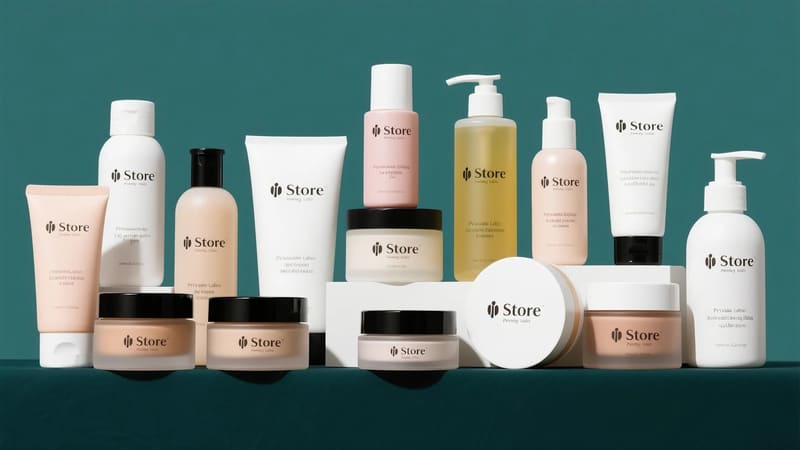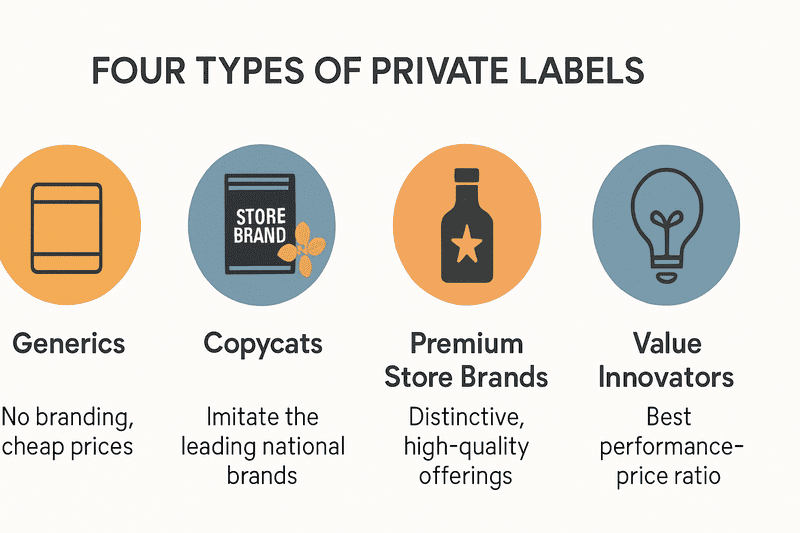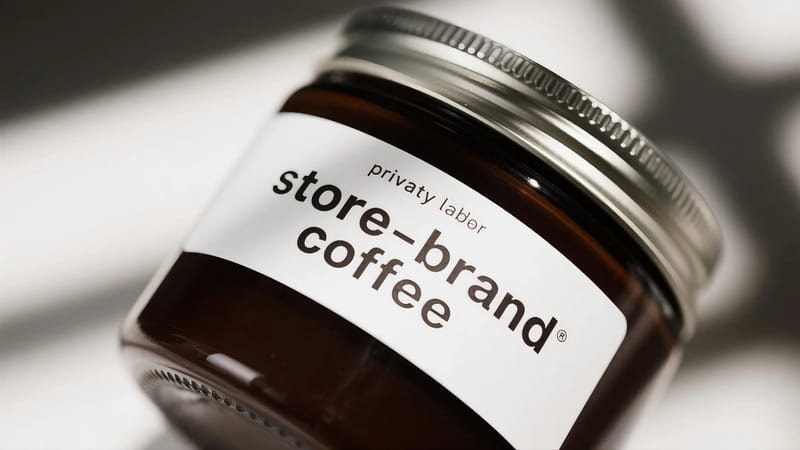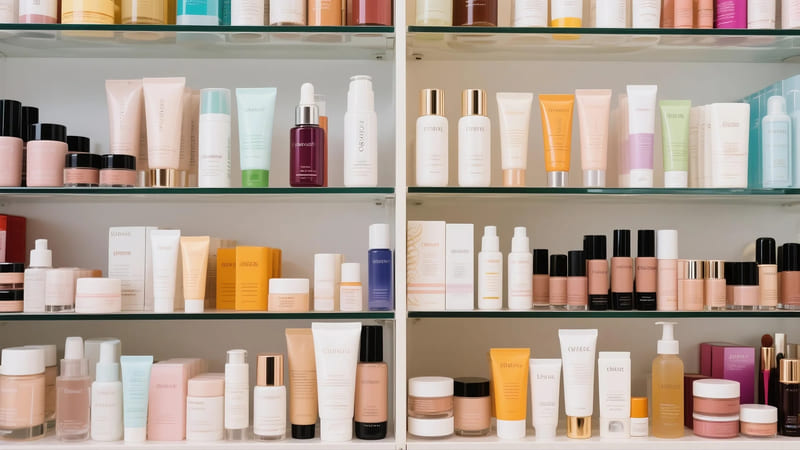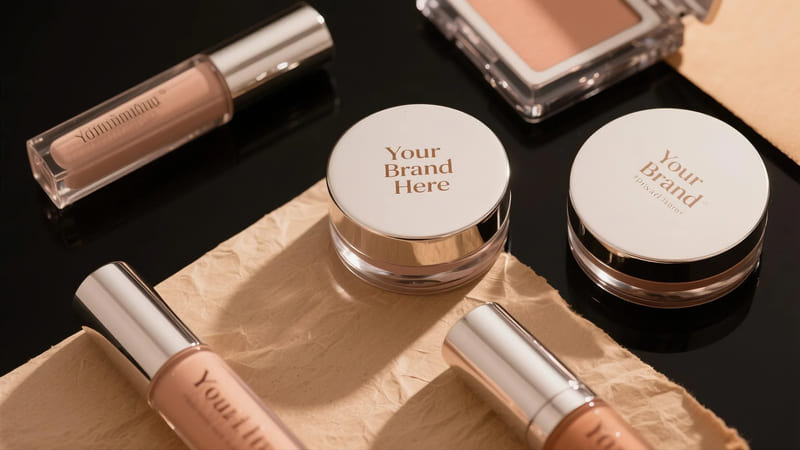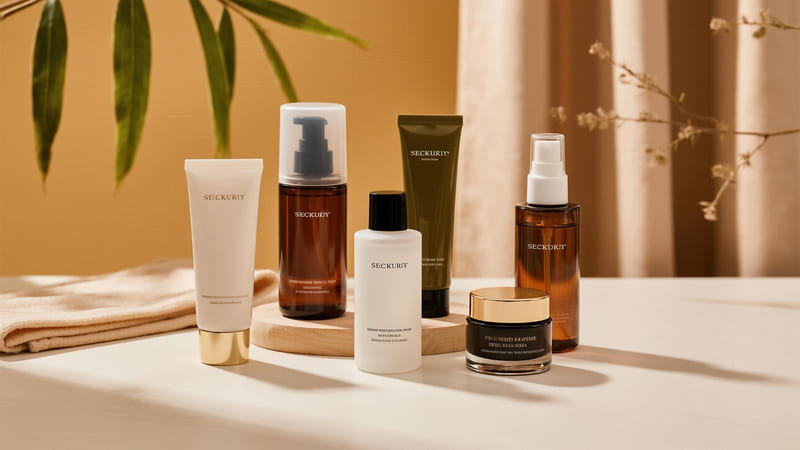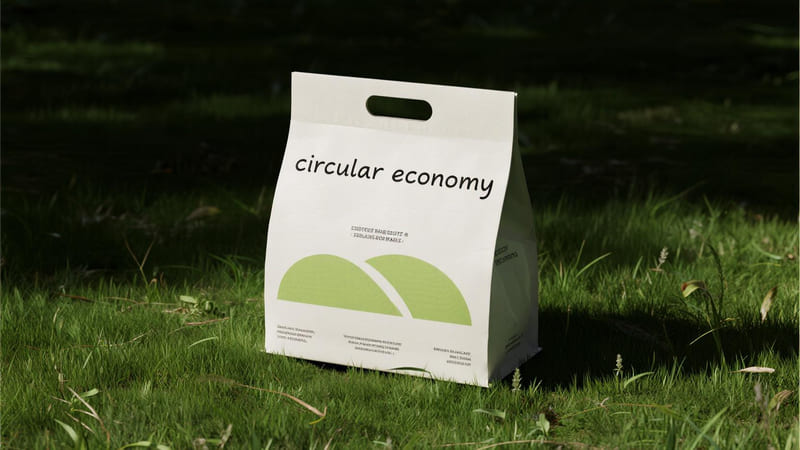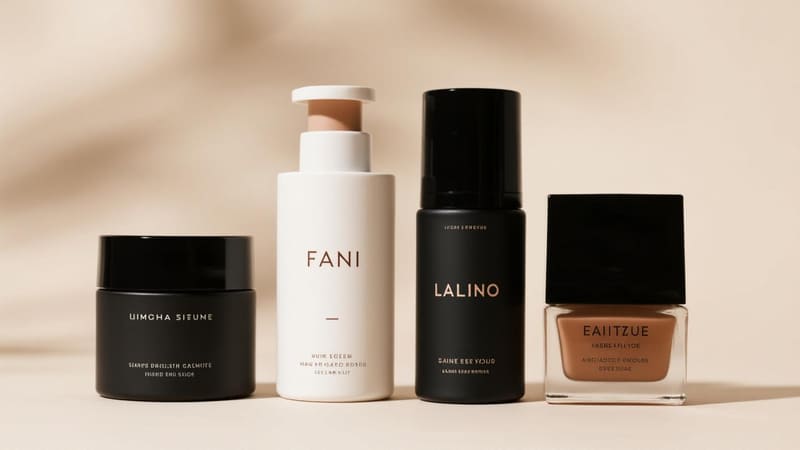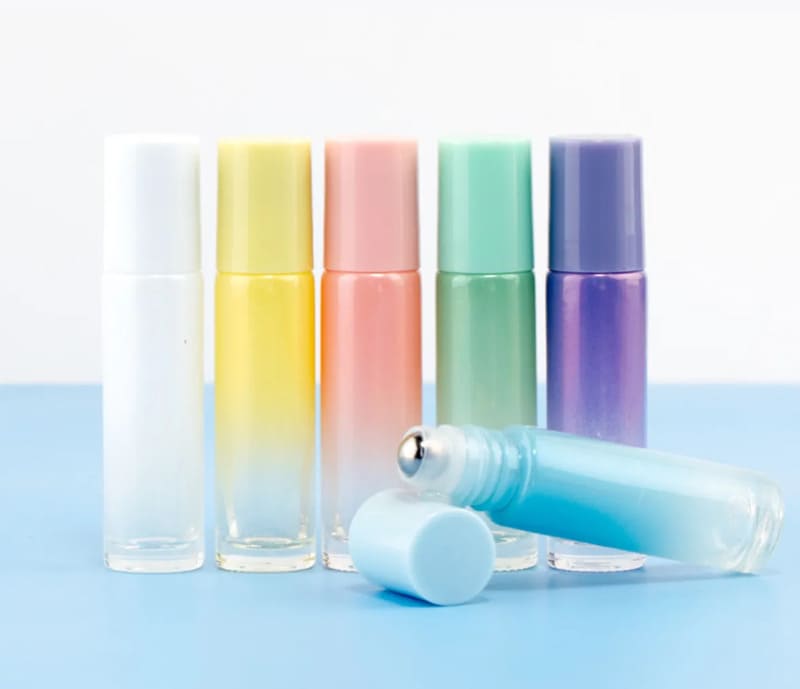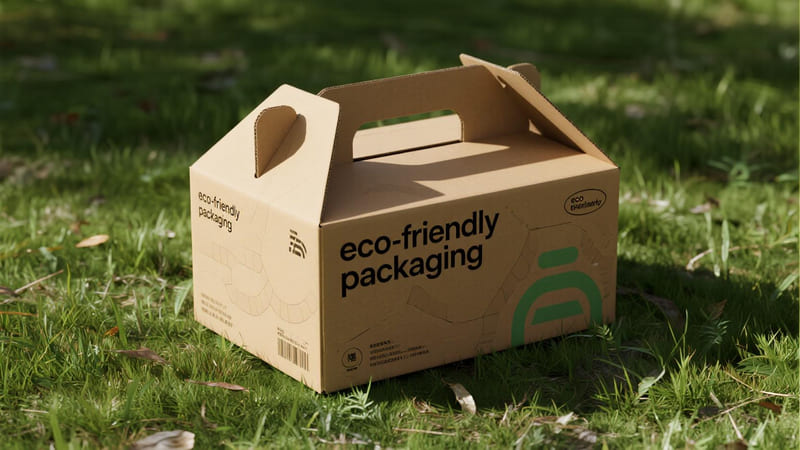You’ve likely encountered them frequently in stores: products bearing the retailer’s own brand name, sitting alongside well-known national brands. These are private label products, and they are a significant and growing part of the cosmetic and personal care industry.
Private label cosmetic and personal care products are items manufactured by a third-party company (the contract manufacturer) but sold under a retailer’s or another brand’s own name and branding. The retailer controls the product’s specifications, marketing, and pricing, while the manufacturer handles the formulation, production, and often, initial packaging.
This model allows retailers, salons, spas, influencers, or entrepreneurs to offer their own line of beauty products without needing to invest in their own manufacturing facilities or extensive R&D. As a packaging supplier with ShineTop, we often work with both contract manufacturers producing private label goods and directly with brands launching their own private label lines, providing them with custom packaging solutions.
What are the 4 Types of Private Labels?
Private labels aren’t a monolithic category. They can range from basic, budget-friendly options to premium offerings that compete directly with national brands. Understanding these distinctions is helpful.
While classifications can vary, four common types of private labels are: 1. Generics (basic, no-frills), 2. Store Brands/Retailer Brands (mimicking national brand quality, e.g., Target’s Up & Up), 3. Premium Private Labels (high quality, often unique, positioned as a top-tier alternative, e.g., Costco’s Kirkland Signature), and 4. Exclusive Brands (unique brands created by a retailer, sometimes with a distinct identity not obviously tied to the store).
These types represent different strategies retailers use to cater to various consumer segments and market positions.
Exploring the Types:
-
Generics (Basic/Value Private Labels):
- Characteristics: Typically the least expensive option, with very basic packaging and minimal marketing. Focus is purely on price. Quality is usually acceptable but not premium.
- Example (General Retail): A supermarket’s plain-packaged "Corn Flakes" or "Toilet Paper."
- Cosmetics/Personal Care: Might be a very basic bar soap or lotion with simple store branding and a low price point.
-
Store Brands / Retailer Brands (Standard Private Labels):
- Characteristics: Designed to be direct competitors to national brands, offering similar quality at a slightly lower price. Packaging often mimics the look and feel of established brands in that category. This is the most common type.
- Example (General Retail): Walmart’s "Great Value," Kroger’s "Simple Truth," Target’s "Up & Up."
- Cosmetics/Personal Care: A drugstore chain’s own brand of shampoo, face wash, or makeup that looks and performs similarly to well-known brands.
-
Premium Private Labels:
- Characteristics: Positioned as high-quality, sometimes even superior to national brands, often with unique formulations or features. Packaging is typically more sophisticated and may not heavily emphasize the retailer’s name. Price point can be close to or even match national brands.
- Example (General Retail): Costco’s "Kirkland Signature," Whole Foods’ "365 Everyday Value" (which has premium tiers), Loblaws’ "President’s Choice" (Canada).
- Cosmetics/Personal Care: A high-end department store’s exclusive skincare line, or a specialty beauty retailer’s premium makeup collection.
-
Exclusive Brands (Captive Brands / Proprietary Brands):
- Characteristics: These are brands created by and sold exclusively at a particular retailer, but they are marketed as distinct, standalone brands, often with their own unique identity, story, and target audience. The retailer’s connection might not be immediately obvious to the consumer.
- Example (General Retail): Many fashion brands sold exclusively at a specific department store.
- Cosmetics/Personal Care: Sephora Collection is a good example; while it’s Sephora’s brand, it’s marketed as a comprehensive makeup and skincare line in its own right. Target has also launched many successful exclusive beauty brands.
The lines can sometimes blur, but this categorization helps understand the different market strategies behind private label products.
What is an Example of a Private Label Product?
Private label products are all around us, often so well-integrated into store offerings that we might not even consciously identify them as such unless we’re looking closely.
A common example of a private label product is "Kirkland Signature" brand items sold at Costco. For instance, Kirkland Signature Coffee is a private label product manufactured for Costco by other coffee companies (like Starbucks, for some varieties) but sold exclusively under the Kirkland brand. In cosmetics, Sephora Collection makeup or skincare is a prime example.
Let’s look at a few more examples across different categories:
-
Food & Beverage:
- Trader Joe’s: Almost all products sold at Trader Joe’s are private label, even if they have unique, quirky brand names (e.g., "Trader Joe’s Organic Ketchup," "Joe-Joe’s Cookies").
- Supermarket Chains: Any product bearing the supermarket’s own name (e.g., "Safeway Select Olive Oil," "Tesco Finest Crisps").
-
Household Goods:
- Target’s Up & Up: Offers a wide range of products from paper towels to cleaning supplies.
- AmazonBasics: Amazon’s private label for electronics accessories, home goods, office supplies, etc.
-
Cosmetics & Personal Care:
- CVS Health or Walgreens Brand: Their versions of sunscreen, pain relievers, lotions, and basic makeup items.
- Equate (Walmart): Walmart’s brand for health and personal care items, often positioned against national brands like Cetaphil or Neutrogena.
- Ulta Beauty Collection: Similar to Sephora Collection, Ulta’s own extensive line of makeup and skincare.
- Many spa or salon chains will have their own private label line of skincare or haircare products, often formulated by a contract manufacturer to their specifications and featuring the salon’s branding. Anna, a cosmetics manufacturer in Thailand I work with, actually does some private label manufacturing for smaller local spas, in addition to her own brand.
The key characteristic is that the brand name on the product is owned by the retailer or the entity selling it, not by the actual manufacturer of the goods.
What is Cosmetics and Personal Care Products?
This broad category encompasses a vast range of items we use daily for hygiene, grooming, and enhancing our appearance. Understanding the scope helps define what can fall under "private label cosmetics and personal care."
Cosmetics and personal care products are substances or preparations intended for application to the external human body (skin, hair, nails, lips) or oral cavity, primarily to cleanse, beautify, perfume, protect, maintain good condition, or alter appearance. This includes makeup, skincare, haircare, fragrances, oral hygiene products, and some toiletries.
This is a diverse and economically significant industry.
Main Categories within Cosmetics & Personal Care:
-
Skincare:
- Products designed to cleanse, moisturize, treat, and protect the skin.
- Examples: Facial cleansers, toners, serums, moisturizers, eye creams, sunscreens, face masks, body lotions, hand creams.
-
Makeup (Color Cosmetics):
- Products used to enhance or alter facial appearance.
- Examples: Foundation, concealer, primer, blush, bronzer, highlighter, eyeshadow, eyeliner, mascara, lipstick, lip gloss, nail polish.
-
Haircare:
- Products for cleaning, conditioning, styling, treating, and coloring hair.
- Examples: Shampoos, conditioners, hair masks, styling gels/mousses/sprays, hair serums/oils, hair dyes.
-
Fragrances:
- Products designed to impart a pleasant scent.
- Examples: Perfumes, Eau de Parfum, Eau de Toilette, colognes, body mists.
-
Personal Hygiene / Toiletries:
- Products for bodily cleanliness and grooming.
- Examples: Soaps (bar and liquid), shower gels, bath products, deodorants, antiperspirants (often also OTC drugs), shaving creams.
-
Oral Care (Cosmetic Aspects):
- Products for cleaning teeth and freshening breath.
- Examples: Toothpaste, mouthwash, teeth whitening products (those not making drug claims).
Any of these product types can be offered as private label goods. For instance, a hotel chain might have its own private label line of shampoo, conditioner, and lotion for guest amenities. A beauty influencer might launch a private label makeup palette.
What are Private Label Cosmetics?
Focusing specifically on the cosmetics segment, private labeling offers a pathway for various entities to enter the market with their own branded makeup or skincare lines.
Private label cosmetics are makeup, skincare, or other beauty products that are formulated and manufactured by a specialized third-party company (a contract manufacturer or private label specialist) and then marketed and sold under another company’s or individual’s brand name. The brand owner typically controls the product concept, branding, and marketing, while leveraging the manufacturer’s R&D and production capabilities.
This model is popular for several reasons and used by a wide range of businesses.
How Private Label Cosmetics Work & Who Uses Them:
-
The Process:
- Brand Concept: The brand owner (retailer, salon, influencer, entrepreneur) decides on the type of cosmetic products they want to offer, their target market, and brand positioning.
- Supplier Selection: They find a private label cosmetics manufacturer.
- Product Selection/Development:
- Stock Formulas (White Label): The manufacturer offers a range of pre-existing, tested formulas that the brand can choose from. This is quicker and often less expensive. The brand then puts its own label on these products.
- Custom Formulation: The manufacturer develops a unique formula based on the brand’s specifications (e.g., specific ingredients, textures, shades). This is more involved and costly but offers greater differentiation.
- Packaging Selection/Design: The brand chooses packaging (often from the manufacturer’s stock options or sourced separately, sometimes with help from companies like ShineTop for custom designs) and designs the labels and artwork.
- Manufacturing & Filling: The manufacturer produces the cosmetic product and fills it into the chosen packaging.
- Branding & Marketing: The brand owner markets and sells the products under their own name.
-
Who Uses Private Label Cosmetics?
- Retailers: Drugstores, supermarkets, department stores, beauty specialty stores (e.g., Sephora Collection, Ulta Beauty Collection).
- Salons & Spas: Offer their own branded lines of skincare or haircare.
- Beauty Influencers & Celebrities: Launch their own makeup or skincare lines.
- Entrepreneurs & Startups: A common way to enter the beauty market without the massive investment required for in-house R&D and manufacturing.
- Boutique Brands: Small brands focusing on niche markets.
Benefits for the Brand Owner:
- Lower Startup Costs: No need to invest in factories or extensive R&D.
- Faster Speed to Market: Especially with stock formulas.
- Brand Control: Control over branding, marketing, and pricing.
- Higher Profit Margins (Potentially): Compared to reselling national brands.
- Ability to Create Exclusive Products.
Role of Packaging Suppliers like ShineTop:
We often work with both the contract manufacturers (who need packaging for the private label products they produce) and directly with the brands launching private label lines. If a brand using a private label manufacturer wants unique, custom packaging that the manufacturer doesn’t offer, they might come to us at ShineTop to develop bespoke bottles, jars, tubes, or boxes that truly reflect their unique brand identity. This allows them to differentiate their private label offering even further.
Conclusion
Private label cosmetic and personal care products offer a versatile pathway for retailers, entrepreneurs, and influencers to create their own branded beauty lines by leveraging the expertise of third-party manufacturers. From basic store brands to premium exclusive collections, this model allows for control over branding and marketing without the heavy investment in production facilities. Understanding the different types of private labels and the process involved can help brands effectively navigate this dynamic segment of the beauty industry, with custom packaging playing a crucial role in establishing a unique brand presence.

